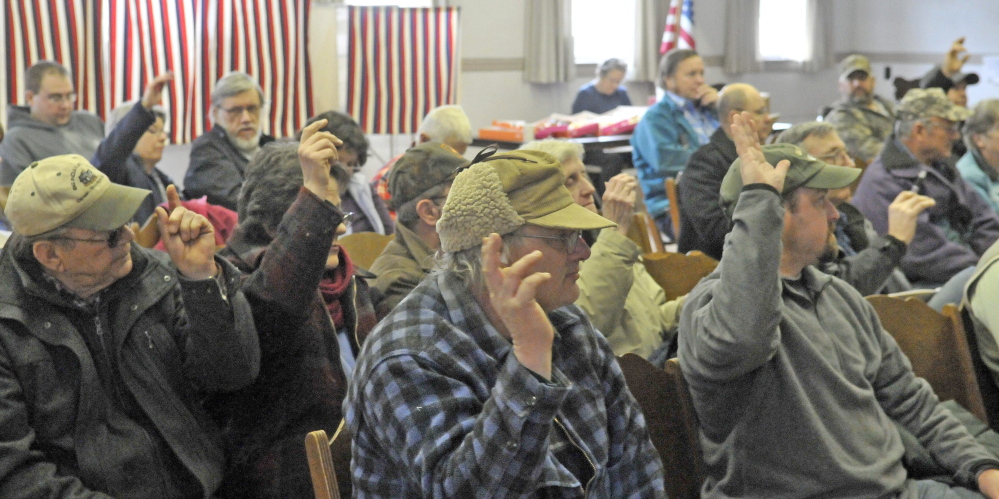The New England towns governed by selectmen and town meetings have been praised for centuries as living democracy in its purest form.
Writing in the 1840s, the political philosopher Alexis de Tocqueville observed: “Town-meetings are to liberty what primary schools are to science; they bring it within the people’s reach, they teach men how to use and how to enjoy it. A nation may establish a system of free government, but without the spirit of municipal institutions it cannot have the spirit of liberty. ”
In the late 20th century, Soviet dissident and exile Alexsandr Solzhenitsyn took refuge in Cavendish, Vermont, where he saw a functioning local government for the first time in his life. On leaving town in 1994 to return to Russia, the author made a speech at the annual town meeting.
“Here in Cavendish, and in the surrounding towns, I have observed the sensible and sure process of grass-roots democracy, in which the local population solves most of its own problems on its own, not waiting for the decisions of higher authorities. Unfortunately, we do not have this is Russia, and that is still our greatest shortcoming.”
LEPAGE WEIGHS IN
Home rule as practiced in New England was also brought up in a speech this year, when Gov. LePage was sworn in for his second term. The governor said it’s time for Maine to consolidate services and operate municipalities more efficiently, even if that means giving up the local control that de Tocqueville and Solzhenitsyn found so impressive.
“I will be the first one to admit it, that when I was the mayor of Waterville, local control was important to me. And I wanted the state to pay for it, just like every other elected official in the state of Maine. Now I’m governor. It’s expensive. It’s real expensive.”
So, who’s right? Are home rule and local control traditions that put decision-making power into the hands of the people affected, or luxuries too expensive for modern times?
The answer may be: a little of both.
As Maine Sunday Telegram historian Colin Woodard said in a Feb. 8 essay, it may be time for us to rethink what we mean by “home” when we say “home rule.”
There was a time when Mainers would be born, go to school, work, worship, die and be buried in the same municipal subdivision. Today, a Mainer might live in one town, drop their children off at school in another, work in a third and shop for groceries in a fourth. Wal-Mart doesn’t make plans one municipality at a time. We live regional lives, so it makes sense to organize government regionally.
ONE SIZE WON’T FIT ALL
But unlike people, not all towns are created equal.
A 2009 study by Envision Maine found that there is a good argument to be made for close-together suburban towns sharing fire trucks, police dispatchers and snowplows. But isolated rural towns that have few services and rely on volunteers could actually see their expenses rise by giving up the tradition of local control.
Since the decision about whether or not to consolidate will not be the same for every community, it also makes sense that it be made on the local level. The state can best serve as an honest broker forging partnerships between municipalities. Cutting state revenue-sharing as a way to force towns to look for economies, as the governor proposes, would punish every town, whether they need to consolidate services or not.
The more difficult question for Mainers is whether the lines drawn in the 17th and 18th centuries still make sense as a way to organize our society. The way we actually live suggests that most of us are not just urban or rural but a little bit of both, and we all have a need to be closer to the decision-making process that affects us, even if it takes place across an imaginary line.
Send questions/comments to the editors.



Success. Please wait for the page to reload. If the page does not reload within 5 seconds, please refresh the page.
Enter your email and password to access comments.
Hi, to comment on stories you must . This profile is in addition to your subscription and website login.
Already have a commenting profile? .
Invalid username/password.
Please check your email to confirm and complete your registration.
Only subscribers are eligible to post comments. Please subscribe or login first for digital access. Here’s why.
Use the form below to reset your password. When you've submitted your account email, we will send an email with a reset code.